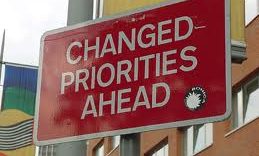 Households are choosing to disconnect their broadband altogether rather than pay the huge cost-of-living crisis increase in broadband bills, Citizens Advice says.
Households are choosing to disconnect their broadband altogether rather than pay the huge cost-of-living crisis increase in broadband bills, Citizens Advice says.
2023 has seen most major broadband companies hike existing customers’ monthly bills, even for those under contract. With so many providers choosing to increase the monthly burden on customers, many households have had to cancel their broadband package altogether. According to a survey by charity Citizens Advice, up to one million people disconnected their broadband in the last year as the effects of the cost-of-living crisis left them unable to afford their bills. With fuel prices, food costs and energy bills all soaring in recent times, many people have found that paying even more for their internet connection is simply unsustainable.
The impact of rising broadband bills have been felt hardest by people receiving Universal Credit, according to Citizens Advice. Its survey showed claimants were “six times more likely to have stopped spending on broadband in the last 12 months” compared to households not receiving Universal Credit payments. The issue is not limited to households that have cancelled their service, as Citizens Advice reported that people claiming Universal Credit are four times more likely to be behind on their internet bills than non-claimants.
What about social broadband?
This situation is all the more concerning because there is a system in place designed to limit the chances of households being unable to afford broadband. People on Universal Credit should be able to claim broadband at a discounted rate through a social tariff. Social broadband is offered by most major internet suppliers at a cheaper rate than its standard packages with an equivalent speed. It can only be offered to people who claim certain means-tested benefits, including Universal Credit and Pension Credit. However, Ofcom figures show that these deals have an uptake of just 5%. Of the 4.3 million eligible households, 95% are missing out. That is the equivalent of £824 million of unclaimed broadband support.
The figures suggest that accessing this essential help may not be as easy as it needs to be. Social tariffs could make a significant difference to a low-income household by not only lowering the monthly cost of internet access but also adding extra flexibility and speed. Some providers offer social broadband packages with download speeds fast enough for a large family at a lower cost than most basic internet deals. Many also come with the flexibility to cancel or change packages at short notice.
We have more information on which options are the best and who is eligible to apply in our article ‘Which providers offer the best social tariff broadband?‘. We also cover what to do when your broadband bill goes up in our article ‘Broadband price increases for 2023 – Provider price hikes revealed’.
What else is being done to help?
Home internet is no longer a luxury, but a crucial component of everyday life in the UK. Much like a working energy supply to your home or a connection to clean water, being able to use the internet is increasingly considered essential for day-to-day living. The additional one million people without a broadband connection may now find it difficult to claim benefits, earn a living, manage their bills and access medical care. Citizens Advice has suggested that the solution lies with broadband companies and with the industry regulator, Ofcom.
Dame Clare Moriarty, Chief Executive of Citizens Advice, said: “As providers continue to drag their feet in making social tariffs a success, it’s clear that Ofcom needs to hold firms’ feet to the fire.”
A government spokesperson encouraged those cancelling broadband to explore social tariff options. They also said “Jobcentre staff regularly signpost claimants to relevant information on social tariffs, and claimants can access computers for their work search at their local Jobcentre.”





